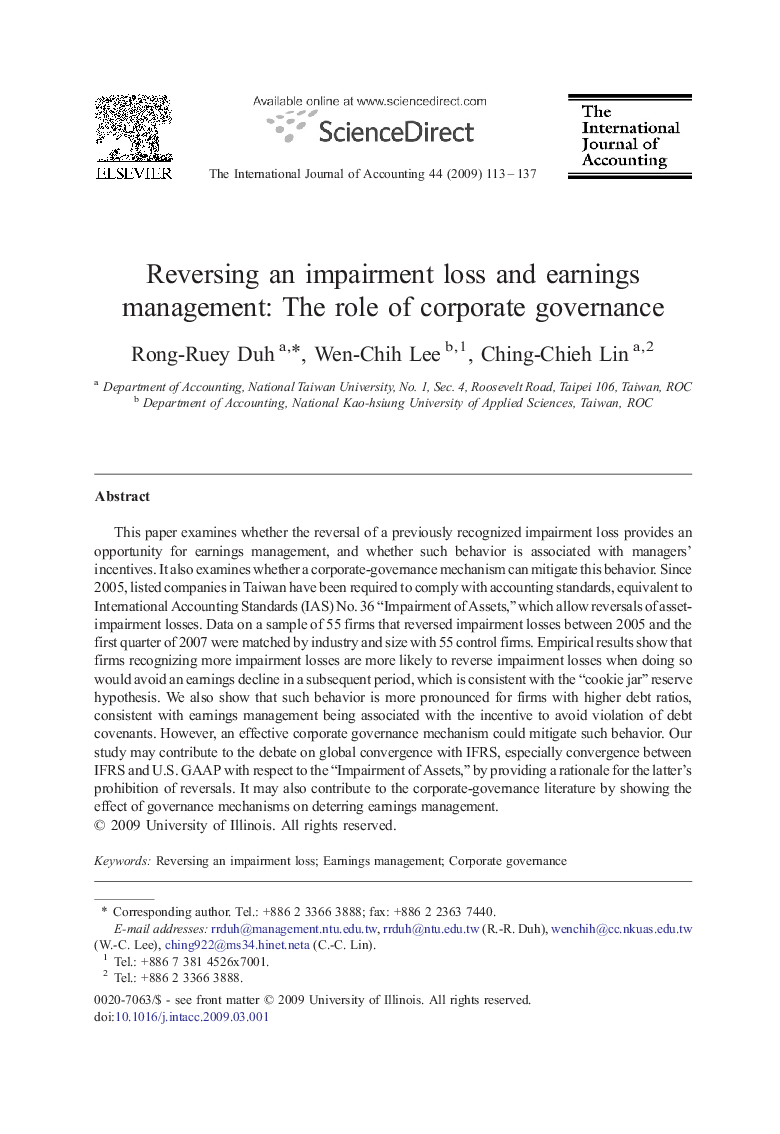| Article ID | Journal | Published Year | Pages | File Type |
|---|---|---|---|---|
| 1005231 | The International Journal of Accounting | 2009 | 25 Pages |
This paper examines whether the reversal of a previously recognized impairment loss provides an opportunity for earnings management, and whether such behavior is associated with managers' incentives. It also examines whether a corporate-governance mechanism can mitigate this behavior. Since 2005, listed companies in Taiwan have been required to comply with accounting standards, equivalent to International Accounting Standards (IAS) No. 36 “Impairment of Assets,” which allow reversals of asset-impairment losses. Data on a sample of 55 firms that reversed impairment losses between 2005 and the first quarter of 2007 were matched by industry and size with 55 control firms. Empirical results show that firms recognizing more impairment losses are more likely to reverse impairment losses when doing so would avoid an earnings decline in a subsequent period, which is consistent with the “cookie jar” reserve hypothesis. We also show that such behavior is more pronounced for firms with higher debt ratios, consistent with earnings management being associated with the incentive to avoid violation of debt covenants. However, an effective corporate governance mechanism could mitigate such behavior. Our study may contribute to the debate on global convergence with IFRS, especially convergence between IFRS and U.S. GAAP with respect to the “Impairment of Assets,” by providing a rationale for the latter's prohibition of reversals. It may also contribute to the corporate-governance literature by showing the effect of governance mechanisms on deterring earnings management.
